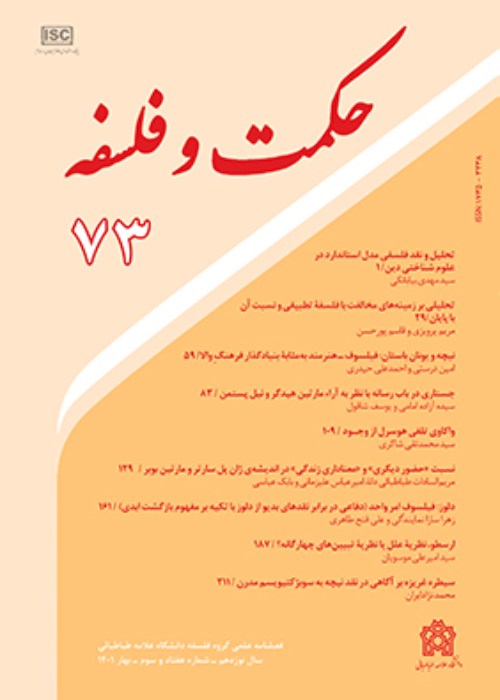Heidegger's Account of Platonic Idealism as Origin of Aesthetics
Author(s):
Abstract:
While the ancient Greek never had a specific term for what we know today as art, they used poiesis and techne to refer to concepts broader than contemporary fine arts. Poiesis meant "to make" and "to bring forth". It was a verb, an action that transformed and continued the world. This transformation was done through techne and physis. In physis, now translated as nature yet having a broad connotation then as it covered the gods, the creatures came into being by themselves. In techne, they were, however, created by technites.Plato changed not only the Greek thinking but also its attitudes towards the art. According to Heidegger, eidos (idea) is innate and equal to ekphanes and ekphanestaton (what properly shows itself as the most radiant of all is the beautiful). By way of the idea, a work of art comes to appear in the designation of the beautiful as ekphanestaton. Heidegger goes on to consider this a main component of the aesthetic attitude towards the art. One would also recognize two other events in Platonic thinking which could be considered the origins of other components of aesthetics: separation of art and truth as well as separation of beauty and truth. As to on should necessarily be divided into aletheia (truth) and phainomenon (image), the artist is an on phainomenon, and the art and truth become separated. Following his ancestors, Plato draws similarities between to kalon (beauty), to agathon (good) and to alethes (truth) and considers beauty to belong to the realm of on phainomenon and truth to the realm of alatheia in Phaedrus. Therefore, the three mentioned aesthetic components are all rooted in the Platonic Idealism.
Keywords:
aesthetics , art , beauty , existence , truth , manifestation
Language:
Persian
Published:
Wisdom and Philosophy, Volume:8 Issue: 3, 2013
Page:
121
magiran.com/p1103977
دانلود و مطالعه متن این مقاله با یکی از روشهای زیر امکان پذیر است:
اشتراک شخصی
با عضویت و پرداخت آنلاین حق اشتراک یکساله به مبلغ 1,390,000ريال میتوانید 70 عنوان مطلب دانلود کنید!
اشتراک سازمانی
به کتابخانه دانشگاه یا محل کار خود پیشنهاد کنید تا اشتراک سازمانی این پایگاه را برای دسترسی نامحدود همه کاربران به متن مطالب تهیه نمایند!
توجه!
- حق عضویت دریافتی صرف حمایت از نشریات عضو و نگهداری، تکمیل و توسعه مگیران میشود.
- پرداخت حق اشتراک و دانلود مقالات اجازه بازنشر آن در سایر رسانههای چاپی و دیجیتال را به کاربر نمیدهد.
In order to view content subscription is required
Personal subscription
Subscribe magiran.com for 70 € euros via PayPal and download 70 articles during a year.
Organization subscription
Please contact us to subscribe your university or library for unlimited access!


